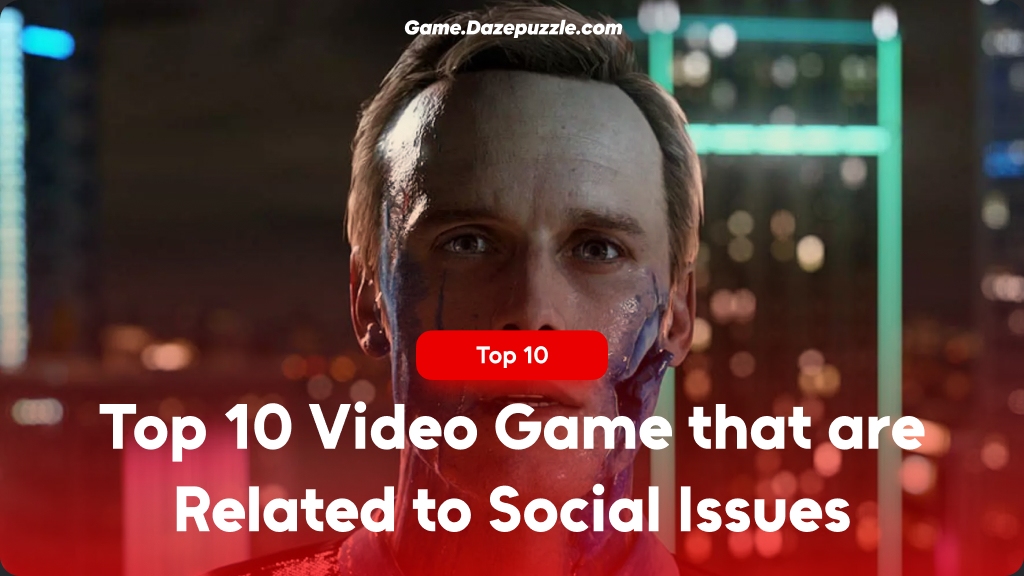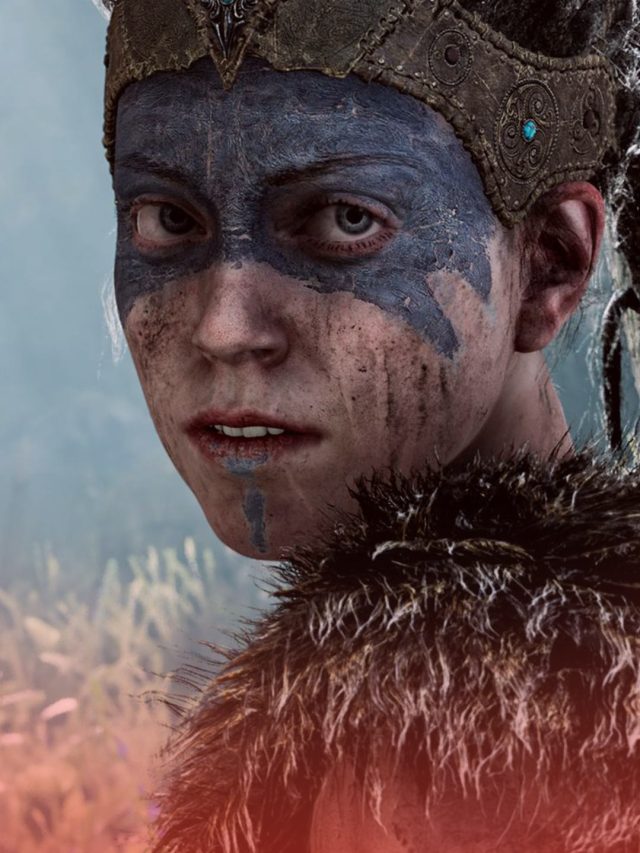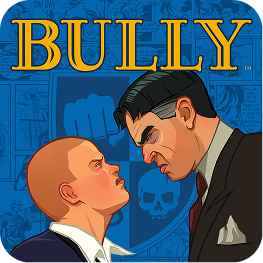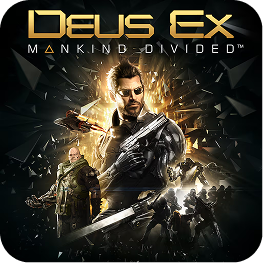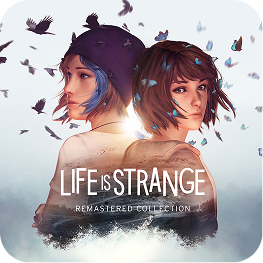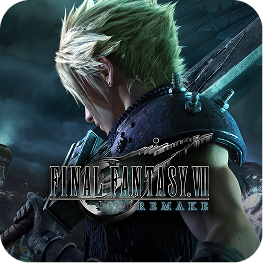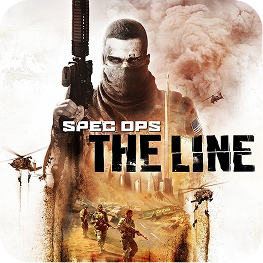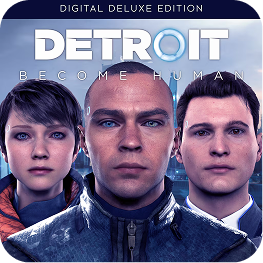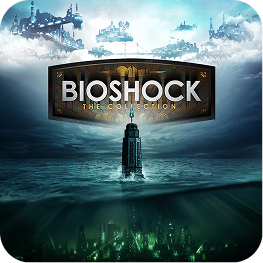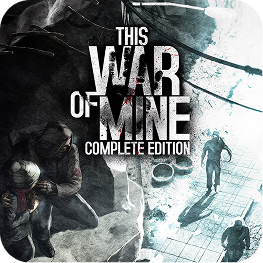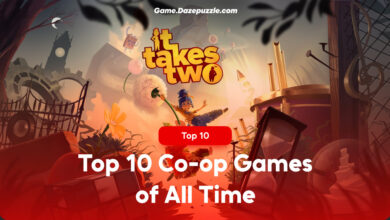Video games aren’t just about flashy graphics, epic battles, or grinding for loot. They’re a medium that can hit you right in the feels, make you question the world, and even shine a light on the messy, complicated stuff we deal with in real life. From systemic oppression to mental health struggles, the games on this list don’t just entertain, they provoke thought, spark empathy, and sometimes leave you staring at the screen, wondering what the hell you just experienced. Here’s our countdown of the top 10 video games that are Related to social issues, blending gripping gameplay with stories that stick with you long after you’ve put down the controller.
10. Bully
A Raw Look at Schoolyard Hierarchies
Rockstar’s Bully drops you into the shoes of Jimmy Hopkins, a troubled teen navigating the chaotic social jungle of Bullworth Academy. Released in 2006, this open-world game isn’t just about throwing punches or pulling pranks, it’s a sharp satire of the cliques, power struggles, and bullying that define high school life. Jimmy’s not a saint, but he’s not a monster either; he’s a kid trying to survive a system where jocks, nerds, preppies, and greasers all vie for dominance. The game doesn’t shy away from showing how cruel kids can be, from verbal taunts to physical beatdowns, and it forces you to confront the consequences of your actions, whether you’re standing up to a bully or becoming one yourself.

What makes Bully stand out is how it mirrors real-world social dynamics. The school’s rigid hierarchy reflects broader societal structures, where power and status often trump kindness or fairness. You’ll see teachers turn a blind eye to abuse, students ostracized for being different, and the constant pressure to conform or fight back. It’s not preachy, but it makes you think about the systems that shape behavior and how far someone might go to fit in or break free. Sure, the game’s got that classic Rockstar edge, sarcastic humor, over-the-top characters, but beneath the surface, it’s a commentary on adolescence, authority, and the struggle to find your place.
9. Papers, Please
Bureaucracy as a Moral Minefield
Papers, Please (2013) isn’t your typical “fun” game. You play as an immigration officer in the fictional dystopian nation of Arstotzka, checking passports and visas at a border checkpoint. Sounds mundane, right? Wrong. Every decision you make, approving or denying entry, carries weight. Let in a desperate refugee with incomplete paperwork, and you might get docked pay, leaving your own family starving. Follow the rules to a T, and you could be sending someone back to a warzone. The game’s pixelated art and repetitive gameplay loop somehow make the moral dilemmas hit even harder, stripping away any glamour to focus on the human cost of bureaucracy.
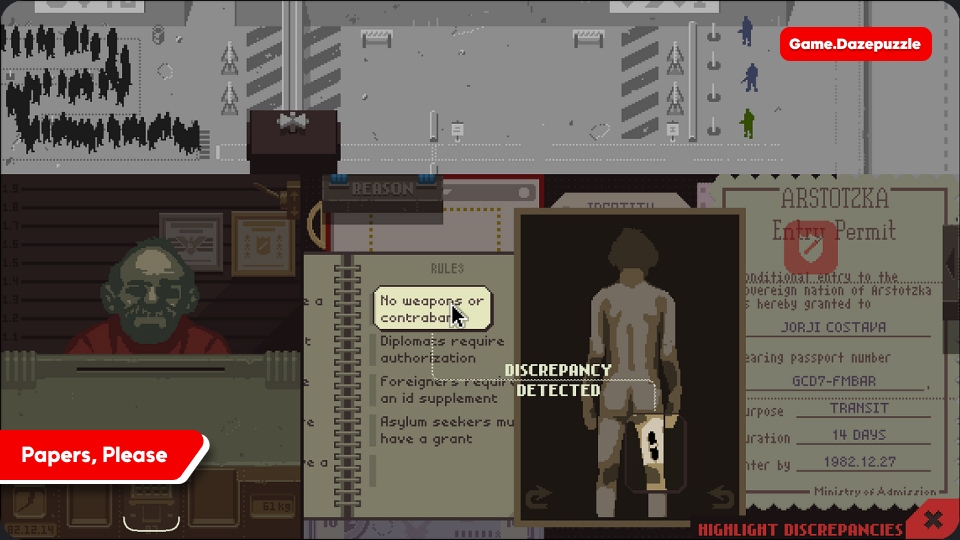
This indie gem shines a light on systemic oppression, immigration policies, and the ethical tightrope of working under a totalitarian regime. You’re not a hero; you’re just a cog in the machine, forced to balance personal survival with compassion. The game’s inspired by real-world issues like the Berlin Wall and modern immigration debates, showing how dehumanizing red tape can be. Every stamp on a passport feels like a judgment call on someone’s life, and the game doesn’t let you off easy, there’s no “right” choice, just consequences. It’s a gut-punch that makes you question authority, morality, and what you’d do under pressure.
8. Deus Ex Series
Cyberpunk Conundrums of Power and Freedom
The Deus Ex series, starting with the 2000 classic and continuing through Human Revolution (2011) and Mankind Divided (2016), throws you into cyberpunk worlds where technology, politics, and human rights collide. You play as augmented agents, part human, part machine, navigating conspiracies, corporate greed, and societal divides. The series tackles heavy themes like transhumanism, surveillance, and class inequality. In Human Revolution, for example, augmentations (think bionic arms or neural implants) are a status symbol for the elite but a source of discrimination for the working class, who can’t afford them or face social stigma for “unnatural” upgrades.
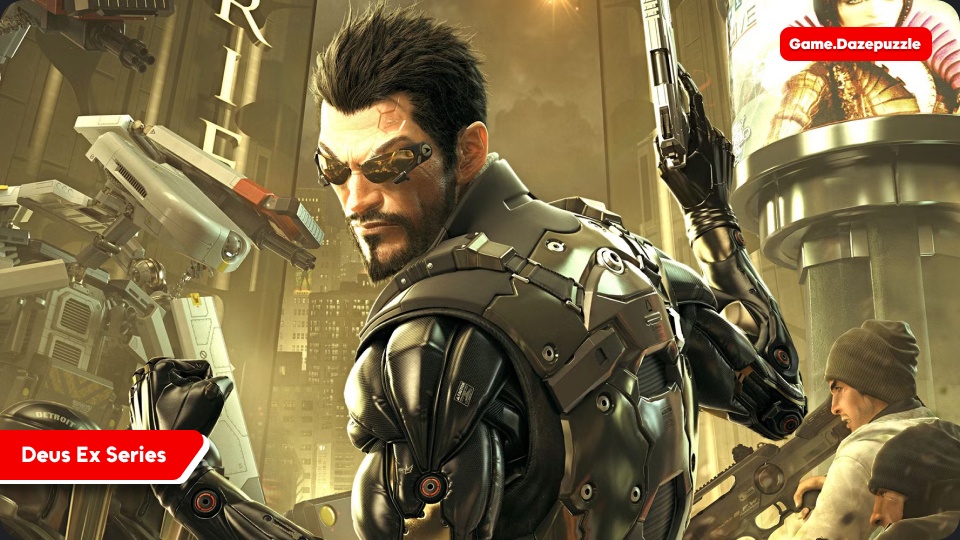
What makes Deus Ex so compelling is its freedom of choice. You can stealth your way through missions, hack systems, or go in guns blazing, and each choice ripples through the story, reflecting real-world debates about privacy, power, and technological ethics. The games don’t preach but ask tough questions: Is augmentation a step toward equality or a new way to divide us? How much freedom are we willing to sacrifice for security? With richly detailed worlds and branching narratives, Deus Ex invites you to wrestle with these issues while still delivering a thrilling sci-fi adventure. It’s a masterclass in blending gameplay with social commentary.
7. Life is Strange
Friendship, Trauma, and Tough Choices
Life is Strange (2015) is a narrative-driven gem that follows Max Caulfield, a teenage girl who discovers she can rewind time. Set in the seemingly idyllic Arcadia Bay, the game peels back the veneer of small-town life to reveal issues like bullying, mental health, and the ripple effects of trauma. Max and her friend Chloe deal with depression, loss, and societal pressures, while the game’s time-travel mechanic lets you see how your choices shape their lives, and the lives of everyone around them. It’s less about “winning” and more about grappling with the messy consequences of trying to fix things.
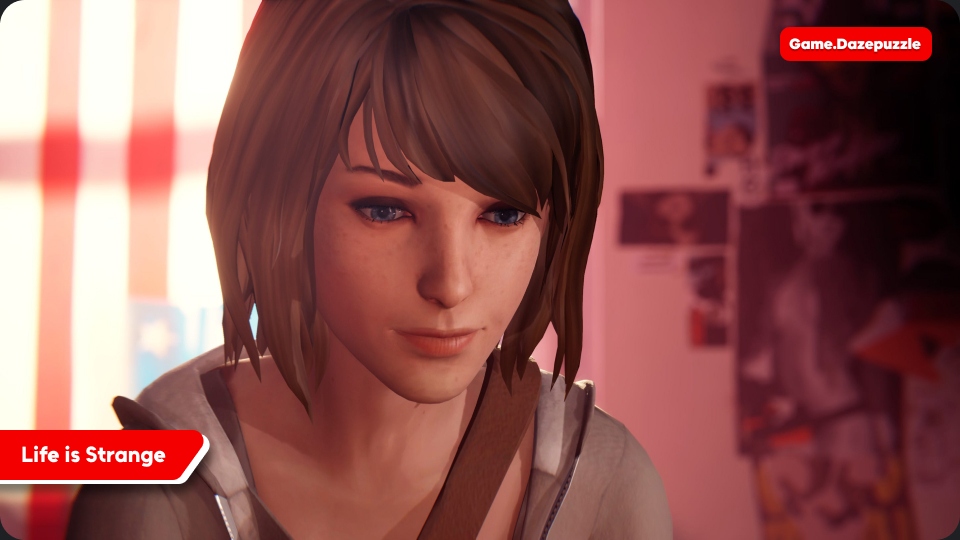
The game’s strength lies in its emotional authenticity. It portrays mental health struggles, like Chloe’s grief or another character’s battle with depression, with nuance and care, avoiding stereotypes or easy answers. It also tackles social issues like class divides, abuse, and the challenges of being a young woman in a world that often dismisses you. The choices you make feel personal, whether you’re standing up to a bully or deciding how far to go to save a friend. Life is Strange is a heartfelt, sometimes heartbreaking exploration of identity and empathy, wrapped in a visually stunning package that lingers long after the credits roll.
6. Final Fantasy VII
Environmentalism and Corporate Greed
Final Fantasy VII (1997), remade in 2020, is a legendary RPG that’s as much about saving the planet as it is about epic battles and spiky-haired heroes. You play as Cloud Strife, a mercenary working with the eco-terrorist group Avalanche to take down Shinra, a megacorporation draining the planet’s life force (Mako) for profit. Sound familiar? The game’s themes of environmental destruction and corporate greed hit hard, especially in a world where climate change and unchecked capitalism are front-page news. Shinra’s exploitation of resources leaves slums in its shadow, while the elite live in luxury, a stark reflection of real-world inequalities.
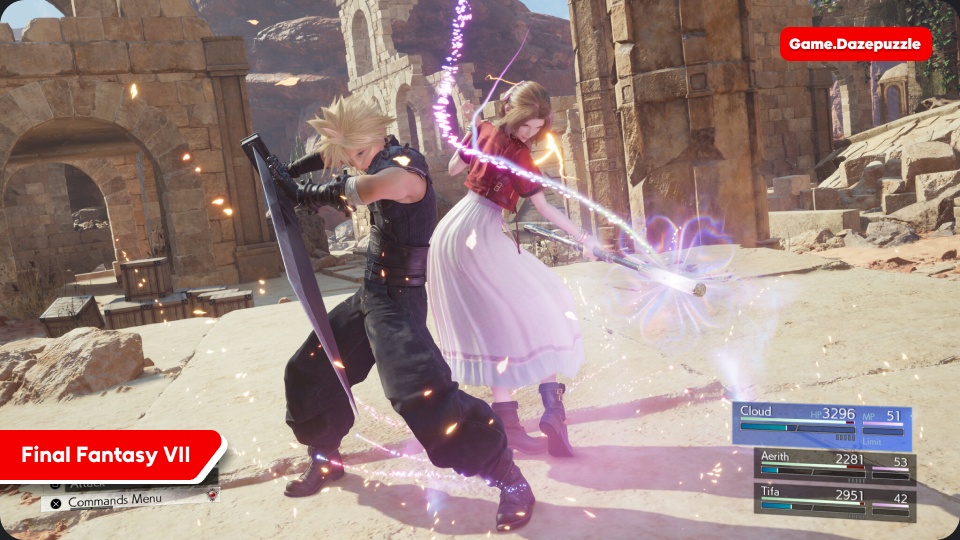
Beyond its green message, Final Fantasy VII dives into personal struggles like guilt, identity, and loss. Characters like Vincent Valentine grapple with trauma and isolation, while the story’s villain, Sephiroth, is shaped by a lifetime of manipulation and betrayal. The game’s sprawling narrative and unforgettable characters make its social commentary feel organic, not forced. Whether you’re playing the original or the visually spectacular remake, Final Fantasy VII challenges you to think about humanity’s impact on the world and the cost of standing up to power. It’s a classic that’s still relevant decades later.
5. Spec Ops: The Line
The Horrors of War and Moral Ambiguity
Spec Ops: The Line (2012) looks like a standard military shooter at first glance, but don’t be fooled, this is a psychological gut-punch that flips the genre on its head. You play as Captain Martin Walker, leading a squad into a war-torn Dubai to find a missing colonel. What starts as a rescue mission spirals into a nightmare of moral dilemmas, PTSD, and the devastating consequences of war. The game forces you to make choices that feel wrong no matter what, like using white phosphorus on enemies only to discover the collateral damage is far worse than you imagined.
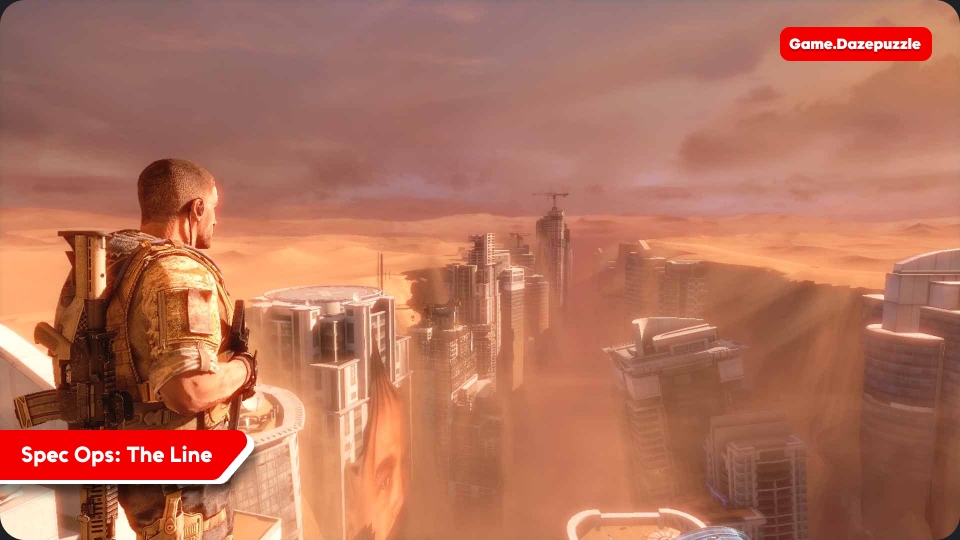
Unlike most shooters that glorify combat, Spec Ops critiques the romanticization of violence and the toll it takes on soldiers and civilians alike. Walker’s descent into guilt and madness mirrors the player’s growing unease, making you question your role in the chaos. Inspired by Heart of Darkness and Apocalypse Now, the game uses its narrative to explore the psychological cost of war and the blurred line between hero and villain. It’s not fun in the traditional sense, it’s haunting, uncomfortable, and unforgettable, forcing you to confront the human cost of conflict.
4. Detroit: Become Human
AI, Humanity, and Discrimination
Detroit: Become Human (2018) is a cinematic adventure that throws you into a near-future world where androids are both ubiquitous and oppressed. You follow three android protagonists, Connor, Kara, and Markus, as they navigate a society that treats them as property, not people. The game explores themes of artificial intelligence, discrimination, and what it means to be human. Through branching narratives and player-driven choices, you decide whether to fight for android rights, seek peaceful coexistence, or just try to survive in a world stacked against you.
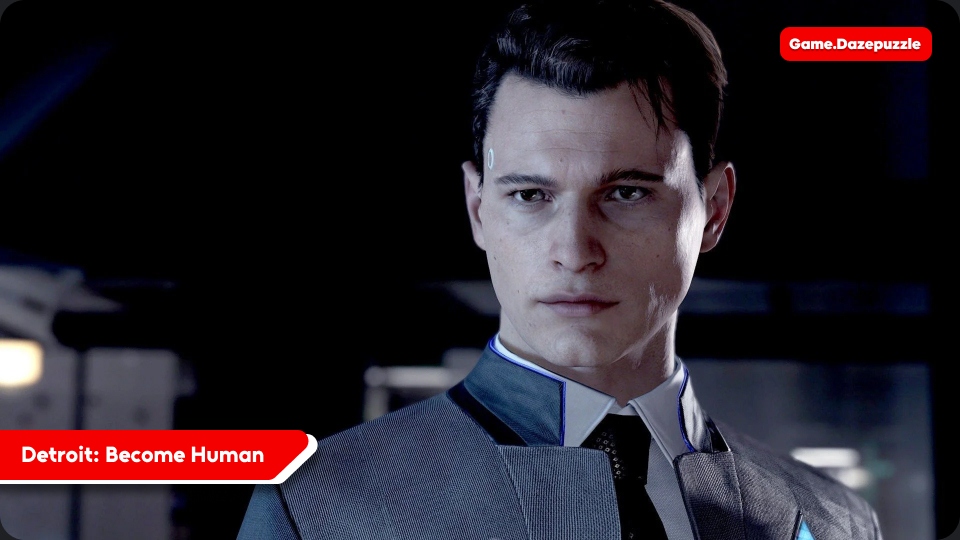
The game’s strength is its ability to mirror real-world issues like racism, classism, and the ethics of technology. Androids face segregation, abuse, and dehumanization, drawing parallels to historical and ongoing struggles for equality. Every choice feels heavy, do you risk everything for freedom, or play it safe and obey? The game doesn’t shy away from showing the consequences of rebellion or compliance, making you question where you stand on issues of autonomy and justice. With stellar performances and a gripping story, Detroit: Become Human is a thought-provoking dive into a future that feels all too plausible.
You might also like this: Top 10 Video Games with the best use of Ray Tracing
3. BioShock
The Cost of Unchecked Ambition
BioShock (2007) plunges you into Rapture, an underwater city built on the ideals of absolute freedom and individualism. Sounds great, until you see it’s a dystopian hellscape where unchecked ambition and greed have torn everything apart. You play as Jack, unraveling the city’s collapse while facing plasmid-enhanced enemies and the enigmatic Andrew Ryan. The game’s a love letter to Ayn Rand’s Objectivism, but it’s also a brutal critique, showing how a society built on “every man for himself” leads to chaos, inequality, and moral decay.

BioShock tackles big questions: What’s the price of perfection? How far will people go for power? Rapture’s crumbling art deco halls and twisted inhabitants drive home the dangers of deregulation and corporate excess, while the game’s famous plot twist forces you to question free will itself. It’s not just a shooter, it’s a philosophical journey that blends fast-paced action with commentary on capitalism, ambition, and the human condition. The visuals, music, and story make BioShock a timeless masterpiece that’s as relevant today as it was on release.
2. Hellblade: Senua’s Sacrifice
A Haunting Journey Through Mental Health
Hellblade: Senua’s Sacrifice (2017) is a raw, unflinching exploration of mental health, specifically psychosis. You play as Senua, a Celtic warrior on a quest to save her lover’s soul, all while battling her own mind. Developed with input from neuroscientists and people with lived experience, the game portrays Senua’s psychosis with stunning authenticity, binaural audio brings the voices in her head to life, sometimes guiding you, sometimes tormenting you. The game’s puzzles and combat are intense, but it’s the emotional weight of Senua’s journey that hits hardest.

What sets Hellblade apart is its refusal to romanticize or vilify mental illness. It shows Senua’s struggles, grief, trauma, and societal stigma, without turning her into a victim or a superhero. The game’s climax, where you’re forced to confront loss and acceptance, is a powerful metaphor for living with mental health challenges. It’s not an easy playthrough, but it’s a profound one, fostering empathy and understanding in a way few games can. Hellblade proves that video games can be both art and advocacy, shining a light on issues too often ignored.
1. This War of Mine
The Civilian Cost of Conflict
Topping our list is This War of Mine (2014), a game that flips the war game formula on its head. Instead of playing a badass soldier, you control a group of civilians trapped in a besieged city, scavenging for food, medicine, and shelter while dodging snipers and looters. Inspired by the Siege of Sarajevo, the game forces you to make impossible choices: steal medicine from an elderly couple to save your friend, or let them die to preserve your humanity? Every decision is a test of survival and morality, and there’s no glory here, just the grim reality of war.
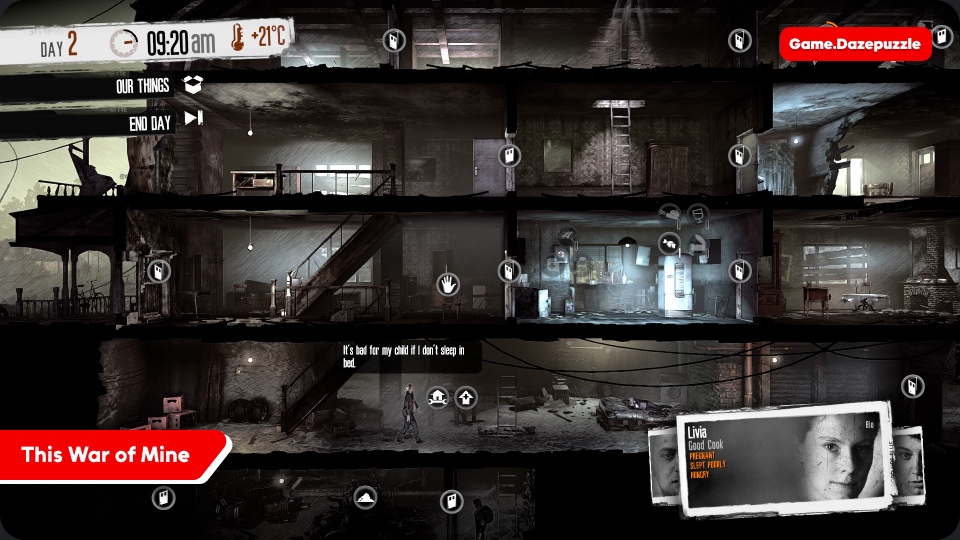
The game’s stark visuals and haunting music drive home the toll of conflict on ordinary people. It tackles themes of survival, sacrifice, and the psychological scars of war, showing how far people will go when pushed to the brink. Unlike most war games, This War of Mine doesn’t let you escape the consequences of your actions, every choice haunts you, whether it’s trading away your last bandage or turning away a desperate neighbor. It’s a powerful reminder of the human cost of war and a call to empathy for those caught in its crossfire. This game doesn’t just entertain; it changes how you see the world.
Why These Games Matter
These 10 games aren’t just fun, they’re a testament to the power of video games as a medium for tackling tough social issues. From the personal struggles of mental health in Hellblade to the systemic critiques of Papers, Please and BioShock, each title uses interactivity to make you feel the weight of its themes. They don’t just tell stories; they put you in the driver’s seat, forcing you to grapple with choices that mirror real-world dilemmas. Whether it’s standing up to a bully, questioning corporate greed, or surviving the horrors of war, these games challenge you to think, feel, and maybe even change your perspective.
What makes these titles stand out is their ability to blend entertainment with meaning. They don’t preach or lecture; they immerse you in worlds where social issues aren’t abstract concepts but lived experiences. You’re not just playing, you’re reflecting, empathizing, and sometimes confronting uncomfortable truths about yourself and society. That’s the magic of gaming: it’s not just about escapism but about engaging with the world in ways that hit harder than any movie or book. So, next time you fire up one of these games, brace yourself, you’re not just playing; you’re stepping into a conversation that matters.

